Healthy Minds: Prioritizing Mental Health [web resource] [downloadable]
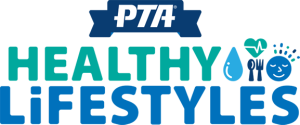 It’s important to support the mental health of all children—before, during and after challenges arise — and to support parents’ and caregivers’ mental health too. Read more ›
It’s important to support the mental health of all children—before, during and after challenges arise — and to support parents’ and caregivers’ mental health too. Read more ›
 It’s important to support the mental health of all children—before, during and after challenges arise — and to support parents’ and caregivers’ mental health too. Read more ›
It’s important to support the mental health of all children—before, during and after challenges arise — and to support parents’ and caregivers’ mental health too. Read more ›
 For students with learning differences, the shifts from online learning to hybrid to in-person (and back) have made a part of their life that is already challenging exceedingly more difficult. In this Voices of Compassion podcast episode, we sat down with Dr. Nicole Ofiesh, Director of the Schwab Learning Center at CHC, about strategies students can use to build Executive Functioning skills in high school, college and beyond. Read more ›
For students with learning differences, the shifts from online learning to hybrid to in-person (and back) have made a part of their life that is already challenging exceedingly more difficult. In this Voices of Compassion podcast episode, we sat down with Dr. Nicole Ofiesh, Director of the Schwab Learning Center at CHC, about strategies students can use to build Executive Functioning skills in high school, college and beyond. Read more ›
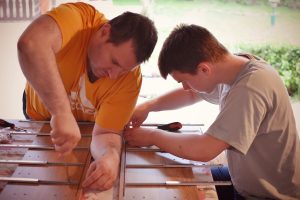 When adults support development of teens’ executive function skills during the critical years of adolescence, it can have a lifelong impact. Read more ›
When adults support development of teens’ executive function skills during the critical years of adolescence, it can have a lifelong impact. Read more ›
 Executive functioning issues don’t go away after high school. They’ll continue to have an impact on your child, whether she’s in college or trade school, on the job or navigating everyday situations. Helping your child learn to manage challenges doesn’t mean you’re letting her off the hook. Your support can help her refine skills as she enters a new phase of life. Read more ›
Executive functioning issues don’t go away after high school. They’ll continue to have an impact on your child, whether she’s in college or trade school, on the job or navigating everyday situations. Helping your child learn to manage challenges doesn’t mean you’re letting her off the hook. Your support can help her refine skills as she enters a new phase of life. Read more ›

 Parenting is never easy, but raising a child with exceptional talents who also struggles with learning differences (such as autism, ADHD or dyslexia) is even more complex. In this Voices of Compassion episode, we talk with Callie Turk, a parent of a 2e child and Dr. Vivien Keil, neuropsychologist, about the journey of understanding and parenting these unique and extraordinary kids. Read more ›
Parenting is never easy, but raising a child with exceptional talents who also struggles with learning differences (such as autism, ADHD or dyslexia) is even more complex. In this Voices of Compassion episode, we talk with Callie Turk, a parent of a 2e child and Dr. Vivien Keil, neuropsychologist, about the journey of understanding and parenting these unique and extraordinary kids. Read more ›
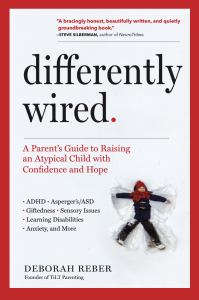 Today millions of kids are stuck in a world that doesn’t respect, support, or embrace who they really are—these are what Deborah Reber is calling the “differently wired” kids, the one in five children with ADHD, dyslexia, Asperger’s, giftedness, anxiety, sensory processing disorder, and other neurodifferences. Read more ›
Today millions of kids are stuck in a world that doesn’t respect, support, or embrace who they really are—these are what Deborah Reber is calling the “differently wired” kids, the one in five children with ADHD, dyslexia, Asperger’s, giftedness, anxiety, sensory processing disorder, and other neurodifferences. Read more ›
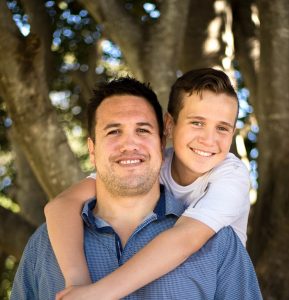 When Kodi Lee appeared on America’s Got Talent, he did so with the help of a cane and his mother. Walking to center stage and speaking took immense effort. After Lee introduced himself, his mother explained that he is blind and autistic. He’s also a talented musician, making him a prominent example of someone who is twice-exceptional, or 2e – terms used to describe people who are intellectually or artistically gifted and have at least one disability. Read more ›
When Kodi Lee appeared on America’s Got Talent, he did so with the help of a cane and his mother. Walking to center stage and speaking took immense effort. After Lee introduced himself, his mother explained that he is blind and autistic. He’s also a talented musician, making him a prominent example of someone who is twice-exceptional, or 2e – terms used to describe people who are intellectually or artistically gifted and have at least one disability. Read more ›
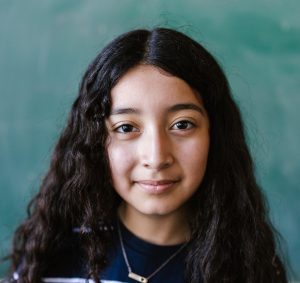 Twice-exceptional children — those who are gifted and have a learning disability or neurological disorder like ADHD — often struggle with issues related to social-emotional growth and/or regulation. As a result, many of these students battle anxiety, stress, emotional regulation, social anxiety, and executive dysfunction. Read more ›
Twice-exceptional children — those who are gifted and have a learning disability or neurological disorder like ADHD — often struggle with issues related to social-emotional growth and/or regulation. As a result, many of these students battle anxiety, stress, emotional regulation, social anxiety, and executive dysfunction. Read more ›
 In this Voices of Compassion episode, we welcome back Jennifer Leydecker, LMFT, CHC Clinic Services to the podcast, to discuss what self-harm looks like in adolescents and how to validate their hurt while encouraging healthier coping strategies. Read more ›
In this Voices of Compassion episode, we welcome back Jennifer Leydecker, LMFT, CHC Clinic Services to the podcast, to discuss what self-harm looks like in adolescents and how to validate their hurt while encouraging healthier coping strategies. Read more ›
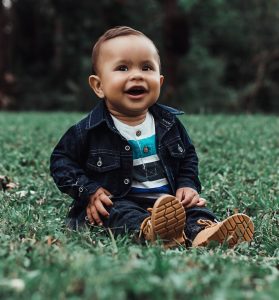 Babies born during the first year of the COVID-19 pandemic in the United States show more evidence of developmental delays at age 6 months compared with those delivered before the virus emerged, a study published by JAMA Pediatrics found. Read more ›
Babies born during the first year of the COVID-19 pandemic in the United States show more evidence of developmental delays at age 6 months compared with those delivered before the virus emerged, a study published by JAMA Pediatrics found. Read more ›